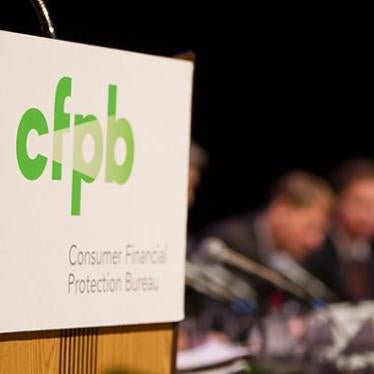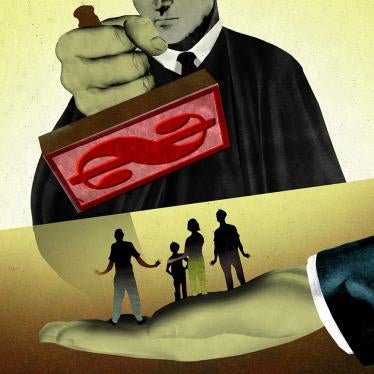The past year was not a great one for consumers or the Consumer Finance Protection Bureau, the agency mandated to regulate predatory lenders and abusive debt collectors. The Trump administration and its allies among special interests have worked to weaken the bureau’s rules and enforcement — they’re even challenging the legality of the bureau itself. Americans are left to fend for themselves in an increasingly complex arena of financial services. The result: mounting debt that prevents people from meeting their most basic needs.
Congress created the bureau to protect the public in the wake of the 2008 financial crisis. But predatory lenders continue to target the poorest Americans, offering small-dollar, short-term loans at egregious triple-digit interest rates that can trap people in cycles of debt. Payday loans are one form of predatory lending, offering to help people cover expenses until their next paycheck, but it also includes other forms of lending, such as vehicle title and some installment loans. Payday borrowers often are low-income people who have limited access to other forms of credit to cover their basic needs, such as rent or utilities. The average borrower is making about $30,000 and the majority are receiving government benefits.
Most payday loans are less than $400. Nearly half of borrowers take out more than 10 loans a year, and about four out of five loans are rolled over or renewed. With the associated fees and penalties, many borrowers end up paying more in fees than the amount they originally borrowed.
In 2017, the bureau announced an important set of rules for these small-dollar lenders, often referred to as the “payday rule.” Critical to ending debt traps, the rule required lenders to assess whether borrowers could afford to repay loans before issuing them, among other new protections. It was meant to go into effect in August 2019.
Payday lenders vehemently opposed the rule, waging a campaign against it. Their offensive included a concerted attempt to influence the Trump administration by soliciting industry contributions to the president’s reelection campaign and hosting a fundraiser with Vice President Mike Pence in Tennessee. Payday lenders held their annual convention at Trump’s National Doral resort, where industry representatives reportedly congratulated themselves for fighting the bureau’s attempts to regulate them.
The administration acquiesced last year when the newly appointed head of the bureau, Kathy Kraninger, proposed to rescind parts of the payday rule, including the crucial ability-to-repay requirement, and to delay the rule’s implementation.
The rule, or whatever remains of it, now will take effect in November 2020. According to a payday debt tracker created by a coalition of consumer advocate organizations, the delay in the implementation of the rule has resulted in more than $2 billion in payday fees on loans that otherwise would not have been issued.
Kraninger also has been criticized for slowing down the pace of enforcement actions against allegedly abusive lenders and debt collectors. There were only 35 actions in 2018 and 2019, compared with 42 in 2016 alone. New investigations dramatically declined. According to the Wall Street Journal, as of August, the bureau had opened only 20 investigations last year, as opposed to 70 in 2016 and 63 in 2017. Industry experts said the bureau also took a softer approach to the penalties it sought from companies in settlements.
Perhaps the most ominous development is that subjects of enforcement actions are arguing that the bureau is unconstitutional and questioning whether it should continue to exist. In October, one of those cases reached the Supreme Court. At the heart of the case is whether the bureau can be led by a single director, who can be removed only by the president “for cause,” in contrast to other “independent” agencies led by multiple members. This provision was meant to preserve the bureau’s independence.
Previously, the bureau defended its mandate and structure, but under Kraninger, the bureau has refused to defend itself, contending that the single-director structure is unconstitutional. This bizarre situation, in which the bureau sided with its most implacable critics, led the Supreme Court to appoint a former solicitor general to defend it because its own management would not. The case will be heard in March.
The bureau should return to fulfilling its mandate of protecting American consumers. It should reinstate all parts of the payday rule and put it into effect immediately. Congress should fight back against the attack on this bureau and, in fact, should be doing more to extend consumer protections, such as limiting excessive interest rates, to all Americans. Consumer protections are a critical element in protecting the human rights of those who seek access to fair credit that will not result in endless cycles of fees and debt.








